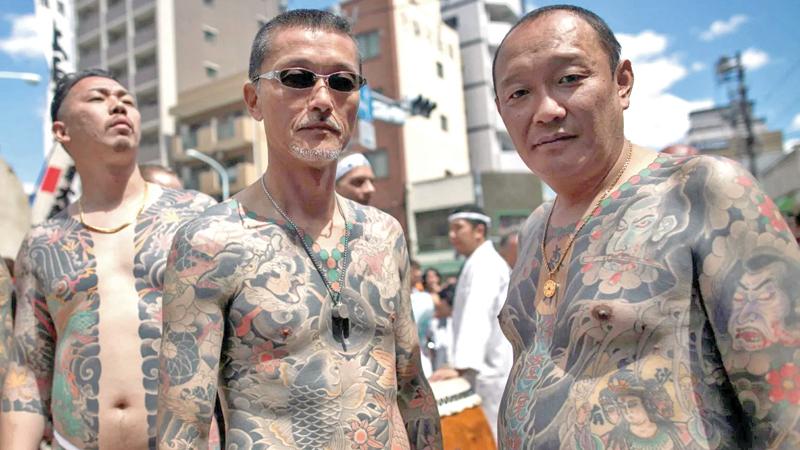
Known internationally as the Japanese equivalent of the mafia, Yakuza is the collective term used to identify the organized crime syndicate based in Japan.
The Yakuza are known for their strict code of conduct, medieval organizational structure and many ritual practices. At their peak, the Yakuza were made up of over 200,000 members across the country, and were responsible for criminal activity extending far beyond Japan’s borders.
Though the Yakuza once enjoyed power and influence over many aspects of Japanese society, their numbers have since dwindled drastically. Though they still operate and inspire a degree of fear, the impact the Yakuza now have on Japan is a fraction of what it used to be.
Operated in public view
Unlike the criminal organizations of other countries, such as the American Mafia or Chinese Triads, the Yakuza were not secret organizations and operated in plain view of the public. Members and groups were so public, they had offices in the business district, wore identifying badges, and had their own business cards.
Though they engaged in typical organized crimes, such as extortion, drug trafficking, human trafficking, and protection rackets, the Yakuza considered themselves to be a legitimate service that benefits the community. And to an extent, this is true, due to the violent control they had over criminal activities.
The Yakuza work within society and are typically accepted as part of it, instead of operating below or around it. Yakuza tend to protect their territories from street level crime, help out in terms of crisis and are generally left alone by the police as long as they don’t use guns, deal drugs or harass tourists.
Some tourists even recently have noted how helpful Yakuza have been during their visits to Japan. In 2011, when the strongest earthquake in Japan’s history and a subsequent tsunami wrecked havoc across the Tohoku region, it was reported that the Yakuza were the first on the scene, providing relief to the victims of the disaster.
Nowadays, most of the world is usually exposed to Yakuza through popular Japanese media and culture.
Popular culture
Much like Western gangster movies, Yakuza have their own niche in Japanese media, though typically depicted as noble and respectable heroes who happen to use violence. Appearances in Western media are usually in the form of one note, easily identifiable criminal organizations. Yakuza are common motifs in Cyberpunk fiction, which problematically depict Japan or other Eastern cultures dominating the world.
The Sega franchise, Ryu ga Gotoku or Yakuza as it is known in the West, is one of the most prominent depictions of Yakuza in popular culture, with a more nuanced grounded approach, that dives into the hierarchies, criminal activities, and relationship with Japanese society that the Yakuza had in real life.
In modern Japan, Yakuza organizations have seen a sharp decline since their peak in the 60s. Japan passed laws and regulations directly or indirectly restricting Yakuza and their activities.
Though no one event jump-started the action taken against them, the people of Japan just simply became more and more intolerant of them, and more than any other criminal organization, the Yakuza relied on being accepted by the public.
They couldn’t be as public as they used to, and recruitment was rare too, now that the public turned against them. However, since this decline, concerns have been brought up about what will happen without the Yakuza.
The Yakuza helped with street crime, controlled drug trade, protected tourism, and kept foreign criminal organizations out. They were transparent with their activities and often cooperated with the police, so there has been some worry about what will take their place when they are gone.

